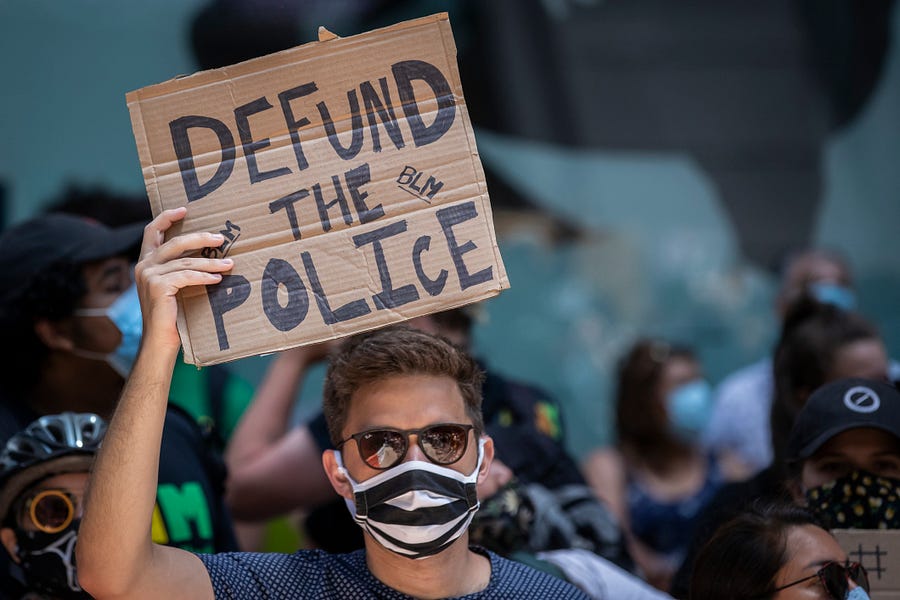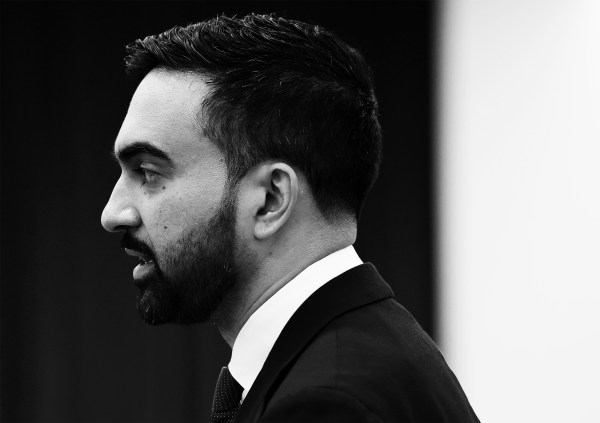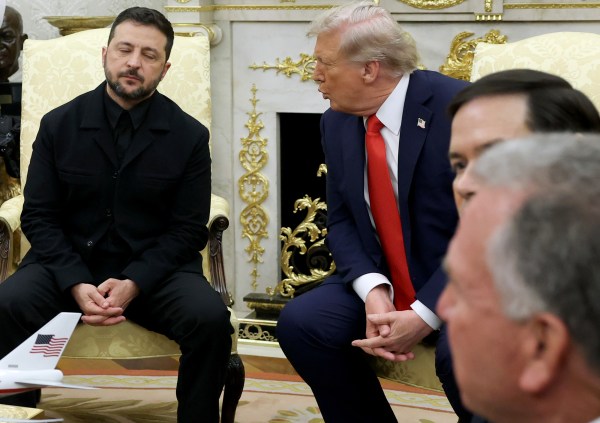In these trying times, it’s difficult to find something to smile about. But I’ve found some modicum of mirth watching very sympathetic liberals go the extra mile to help hone the message of activists calling to “defund the police.” For instance, Katy Tur, an MSNBC anchor, had Isaac Bryan, the executive director of the Black Policy Project at UCLA on Meet the Press Daily to explain what “Defund the Police” really means.
“Isaac, thank you so much for joining us. Let’s talk about what this means because I think there are a lot of people out there who hear ‘defund the police’ and [think] it means abolishing a police department. It doesn’t. So can you explain it to me?”
Bryan very politely replied that he disagreed with the premise of the question. Defund the police doesn’t in fact preclude abolishing the police. Bryan says the term means taking that idea “as far as the political imagination and the political will of our leaders across the country is willing to push this idea.”
Most Democratic politicians understand that actually abolishing police departments root and branch would be close to political suicide (and terrible policy). Even Sen. Bernie Sanders is against it. They also understand that nobody in America wants the Democrats to embrace this idea more than Donald Trump.
That’s why many liberals want “Defund the Police” to mean “reform the police” or even “reinvent the police.” The problem is the activists who hold the emotional and psychological high ground won’t play along. When the mayor of Minneapolis, Jacob Frey, spoke with protesters last week, he said almost everything the crowd wanted about fundamental reform, systemic racism, etc. But when a leader of the protests asked him, “yes or no” do you favor outright abolition of the police, he said no. The crowd booed. The leader told him to get the [expletive deleted] out of here. And he wandered off to chants of “shame” and a sea of extended middle fingers.
What we have here isn’t a failure to communicate but a legitimate difference of opinion. Some people favor serious reform. Some favor actual abolition. It doesn’t seem unreasonable to me that the people who truly favor abolition should continue to say so and the people who don’t should probably stop trying to prove their solidarity by using a slogan they disagree with. And, so far, most prominent Democrats, including presumptive Democratic presidential nominee Joe Biden have done exactly that.
So much for the politics. What about the actual ideas?
Let’s start with reform. Banning choke holds, redirecting some responsibilities to mental health professionals, EMTs, and social workers has been tried with some success. Moving further on that front is sensible.
Repealing “qualified immunity” laws so that police officers can be held more responsible for their actions is more complicated but certainly worth exploring. As a matter of principle, I’m opposed to all public sector unions, even if some do worthwhile things, so I’m certainly open to fresh thinking about police unions.
Many people have focused on the example of Camden, New Jersey, as a model for defunding the police. Except it isn’t. In 2012, the cash strapped city decided to disband the existing force, which was rife with corruption and union-fueled dysfunction, and started over. They rehired some 100 officers and committed to retraining. It appears to have been modestly successful. But no one driving through Camden today would mistake it for some cop-free utopia where yeoman citizens police themselves.
But abolishing the police? That’s insane. No really, it’s insane. Who will respond to school shootings? Social workers? What about bank robberies? Who will investigate murders? If you just want to rename the police, fine. But the police function is essential to a civilized society. And there are times when that function can only be performed by agents of the government willing and able to use force.
Some defunders propose community patrols, which sound a bit like local militias to me. But whatever name you give them, how does that not create more problems? Do you really want untrained groups of cop wannabes confronting “suspicious” characters in a neighborhood? That’s how Trayvon Martin got killed by George Zimmerman. All of the problems with race, but also class, would be exacerbated if local communities took it upon themselves to do police work. Affluent, mostly white, communities would have more resources and poorer, mostly black, communities would have fewer.
Anger over George Floyd’s killing is justified. But what is true of individuals is also true of mass movements: You don’t do your best thinking when you’re really angry.







Please note that we at The Dispatch hold ourselves, our work, and our commenters to a higher standard than other places on the internet. We welcome comments that foster genuine debate or discussion—including comments critical of us or our work—but responses that include ad hominem attacks on fellow Dispatch members or are intended to stoke fear and anger may be moderated.
With your membership, you only have the ability to comment on The Morning Dispatch articles. Consider upgrading to join the conversation everywhere.